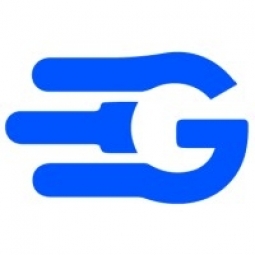Download PDF
Global Pharma Company Streamlines Freight Invoice Processing with GoInvoice
Technology Category
- Functional Applications - Manufacturing Execution Systems (MES)
- Networks & Connectivity - NFC
Applicable Industries
- Pharmaceuticals
- Transportation
Applicable Functions
- Logistics & Transportation
- Quality Assurance
Use Cases
- Last Mile Delivery
- Transportation Simulation
The Challenge
The global pharmaceutical company, established in 1977, faced significant challenges in its freight invoice verification process. With hundreds of shipments every month, the company operated on a global long-term price agreement with its freight forwarders. However, errors in the invoice verification process were affecting the productivity and efficiency of its logistics and accounts teams. The logistics team had to manually check every invoice and forward it to the account and finance department for approval. This labor-intensive process involved a large team and kept them from focusing on more critical tasks. Over 4% of the invoices received were duplicates, and the entirely manual verification process made seeking approvals, processing payments, and following up with vendors for the correct invoices extremely difficult and time-consuming. The process was prone to errors, leading to overpayments due to unchecked invoices that did not match the initial quotation. There was also a lack of standardisation and transparency in the invoice reconciliation process. The auditing process was inefficient and complex due to the lack of a consolidated repository to document the invoices and their status.
About The Customer
The customer is a global pharmaceutical company established in 1977. It is an industry leader with 14 manufacturing facilities and a commercial presence in over 80 countries. The company specializes in manufacturing dermatology, respiratory, and oncology-related products. With hundreds of shipments every month, the company operates on a global long-term price agreement with its freight forwarders. The company's logistics and accounts teams were previously burdened with a labor-intensive and error-prone manual invoice verification process.
The Solution
The company implemented GoComet’s GoInvoice Automated Invoice Reconciliation module to build efficiency into their invoice verification process. The solution used a blend of Optical Character Recognition technology and contextual language processing to automatically match invoices to the original quotations and reject duplicate invoices, ensuring error-free verification. This technology saved up to 65% of the time required in invoice processing. In case of inconsistencies between the invoice and quotation, the module automatically notified the vendors, saving the logistics and accounts team the burden of manual follow-ups. This allowed the company to divert 75% of the workforce required to verify invoices to other critical tasks. The module also auto-approved invoices based on predefined tolerance levels, leading to quicker approvals and faster payment cycles. GoInvoice became a consolidated online repository for keeping track of all invoices and payments. The platform allowed the user to time-stamp remarks on each freight invoice, making audits transparent. The module also offered analytical reports highlighting the overall performance of vendors with respect to the accuracy of invoices, payment cycles, etc.
Operational Impact
Quantitative Benefit
Related Case Studies.

Case Study
Case Study: Pfizer
Pfizer’s high-performance computing software and systems for worldwide research and development support large-scale data analysis, research projects, clinical analytics, and modeling. Pfizer’s computing services are used across the spectrum of research and development efforts, from the deep biological understanding of disease to the design of safe, efficacious therapeutic agents.

Case Study
Airport SCADA Systems Improve Service Levels
Modern airports are one of the busiest environments on Earth and rely on process automation equipment to ensure service operators achieve their KPIs. Increasingly airport SCADA systems are being used to control all aspects of the operation and associated facilities. This is because unplanned system downtime can cost dearly, both in terms of reduced revenues and the associated loss of customer satisfaction due to inevitable travel inconvenience and disruption.

Case Study
IoT-based Fleet Intelligence Innovation
Speed to market is precious for DRVR, a rapidly growing start-up company. With a business model dependent on reliable mobile data, managers were spending their lives trying to negotiate data roaming deals with mobile network operators in different countries. And, even then, service quality was a constant concern.

Case Study
Digitize Railway with Deutsche Bahn
To reduce maintenance costs and delay-causing failures for Deutsche Bahn. They need manual measurements by a position measurement system based on custom-made MEMS sensor clusters, which allow autonomous and continuous monitoring with wireless data transmission and long battery. They were looking for data pre-processing solution in the sensor and machine learning algorithms in the cloud so as to detect critical wear.

Case Study
Cold Chain Transportation and Refrigerated Fleet Management System
1) Create a digital connected transportation solution to retrofit cold chain trailers with real-time tracking and controls. 2) Prevent multi-million dollar losses due to theft or spoilage. 3) Deliver a digital chain-of-custody solution for door to door load monitoring and security. 4) Provide a trusted multi-fleet solution in a single application with granular data and access controls.

Case Study
Vehicle Fleet Analytics
Organizations frequently implement a maintenance strategy for their fleets of vehicles using a combination of time and usage based maintenance schedules. While effective as a whole, time and usage based schedules do not take into account driving patterns, environmental factors, and sensors currently deployed within the vehicle measuring crank voltage, ignition voltage, and acceleration, all of which have a significant influence on the overall health of the vehicle.In a typical fleet, a large percentage of road calls are related to electrical failure, with battery failure being a common cause. Battery failures result in unmet service agreement levels and costly re-adjustment of scheduled to provide replacement vehicles. To reduce the impact of unplanned maintenance, the transportation logistics company was interested in a trial of C3 Vehicle Fleet Analytics.





